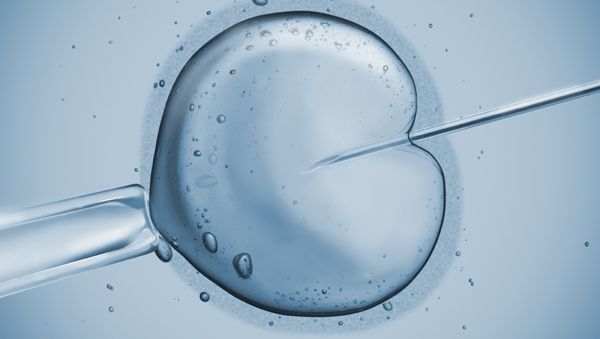Want to Freeze Your Eggs? Let Us Help
Some major corporations have started to offer a new (and costly) perk to their female employees.


This was a major news week for any woman invested in when she may—or may not—want to have a child.
In a move that could start a wave of change for women in the workplace, Facebook and Apple will cover egg freezing for their female employees, In a move that could start a wave of change for women in the workplace, Facebook and Apple willcover egg freezing for their female employees,NBCNews.com reported Wednesday. Facebook has already quietly offered the perk; Apple will start in 2015. Both companies will pay for the procedures (up to $20,000). And Time.com reports that it's not just the Silicon Valley behemoths offering the benefit: Citigroup and JP Morgan Chase cover freezing, too, while Microsoft offers "some preventative coverage."[[according to the report.]]
Offering the costly procedure to female employees means that women have more time to make fertility choices, or, as Christy Jones, founder of egg-freezing company Extend Fertility puts it to "be more productive." Corporations that offer the perk are banking on the fact that potential female hires would be more attracted to their companies, seeing them as female- and family-friendly, and might be willing to put off having children until later in their careers, safe in the knowledge that they've frozen their eggs.
Egg freezing isn't at all a guarantee of a successful pregnancy. (It's often seen as a kind of fertility "insurance"; some women don't end up using their frozen eggs at all). It's also a complicated process involving injections of fertility drugs, followed by rounds of in-vitro fertilization, if a woman does decide to go ahead with implanting her frozen eggs.
Overall, it's a major game-changer, a sign that companies are finally taking note that our country's demographics no longer look the way they used to. More of us are single than married; more of us are delaying having children, and more of us are taking care of our aging parents than ever before. If corporations want to attract and retain employees, they need to offer policies and benefits that reflect these shifts: better maternal and paternal leave, more generous medical leave, and leave that extends to those without children, too. Hopefully egg-freezing coverage is just the beginning.
Related Links:
Should You Freeze Your Eggs Now?
Get exclusive access to fashion and beauty trends, hot-off-the-press celebrity news, and more.
The Baby Dilemma: Hope in a Tank
Image via Getty
